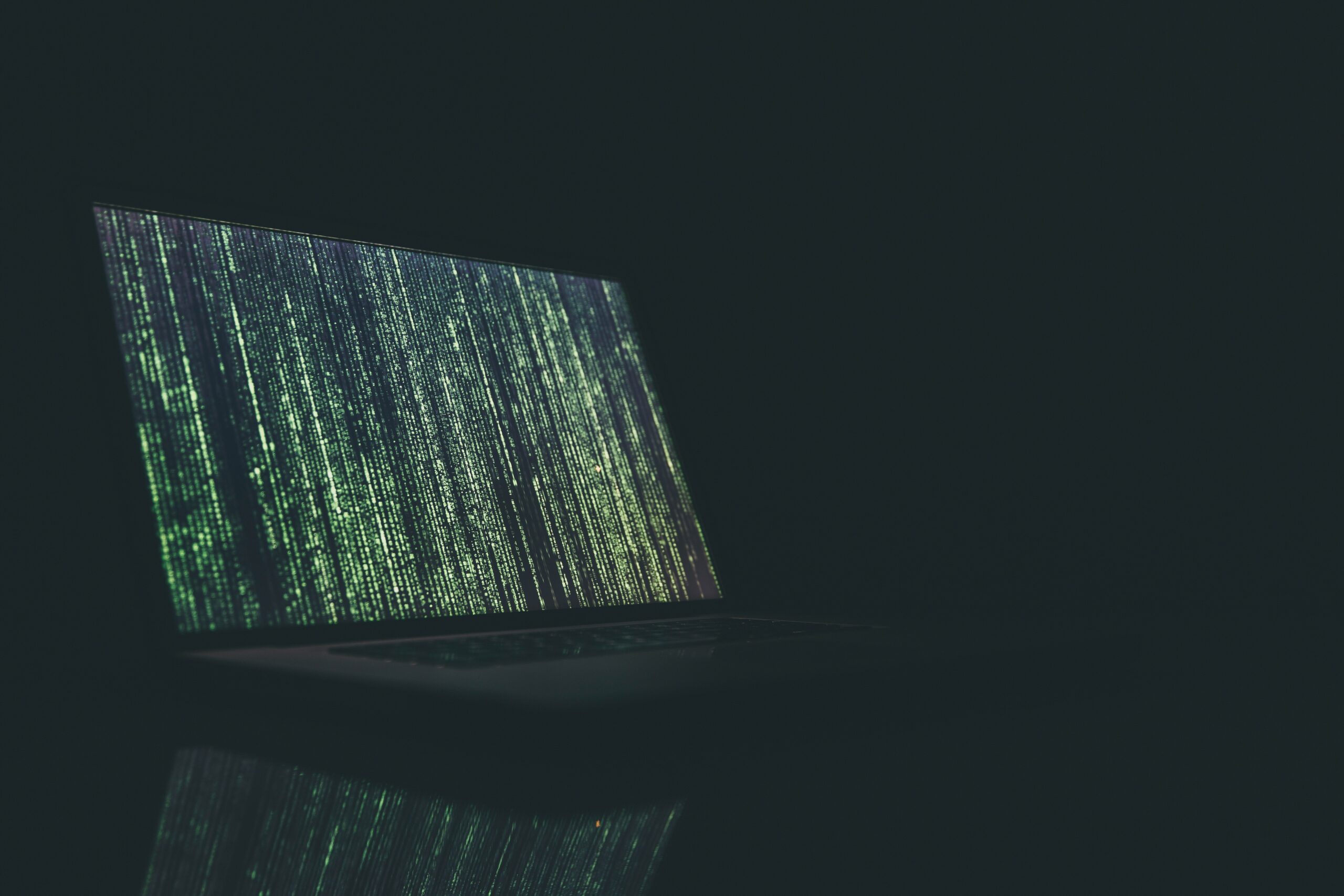Introduction to Wikipedia and Its Significance
Wikipedia, launched in January 2001 by Jimmy Wales and Larry Sanger, represents a revolutionary shift in the way knowledge is accessed and disseminated on the internet. As a collaborative online encyclopedia, it operates under the principle that knowledge should be freely accessible to everyone. This ideal is grounded in the belief that the collective efforts of individuals can produce a reliable and comprehensive source of information, as opposed to the traditional model of knowledge production which often relies on a small group of experts. Wikipedia’s unique user-driven content model allows anyone with internet access to contribute, edit, and improve articles, making it a dynamic repository of information.
The significance of Wikipedia lies not only in its vast repository of articles spanning virtually every topic imaginable but also in its accessibility. Unlike traditional encyclopedias that require purchase or subscription, Wikipedia is freely available to anyone, anywhere, fostering an inclusive environment for learning and inquiry. This model has empowered millions of users worldwide, providing an opportunity to utilize and contribute knowledge without barriers. Furthermore, the platform’s multilingual capabilities make it a significant resource for non-English speakers, expanding the reach of information to diverse populations.
AD
Wikipedia has also profoundly impacted the way individuals approach research and knowledge-gathering. With its easily navigable interface and extensive hyperlinks, users can seamlessly explore related topics, promoting a more interactive way of learning. This contrasts sharply with conventional research methods that often require sifting through multiple sources to gather information. While concerns about the reliability of user-generated content persist, Wikipedia addresses this issue through community monitoring, editing history, and citation practices, contributing to its reputation as a generally reliable source of information.
The Evolution of Knowledge Sharing
The history of knowledge sharing is rich and complex, evolving significantly from ancient times to the present day. Initially, knowledge was predominantly preserved through oral traditions, where information was passed down generations through storytelling. As civilizations advanced, the development of written language marked a seminal shift, allowing for the documentation of knowledge in the form of scrolls and later, books. The establishment of libraries, such as the Library of Alexandria, became crucial for the collection and preservation of texts, which provided a physical space for the dissemination of information.
With the advent of the printing press in the 15th century, knowledge sharing entered a transformative phase. This innovation allowed for the mass production of books, making literature accessible to a broader audience. However, access remained limited to those who could afford books or reach libraries, particularly for the lower socio-economic classes. The democratization of knowledge sharing began gradually, yet significant barriers persisted, particularly in rural or impoverished regions.
In the 20th century, the rise of technological advancements initiated another evolution. The introduction of computers and the internet revolutionized access to information. Online databases and digital archives emerged, providing users with instantaneous access to an abundance of knowledge that transcended previous physical constraints. Researchers began utilizing digital platforms for collaboration, fostering networks that shared insights and expertise across borders.
Despite these developments, knowledge sharing remained often confined to academic or professional circles. It was against this backdrop that Wikipedia emerged in 2001 as a pioneering model of communal knowledge sharing. Unlike its predecessors, Wikipedia offered a platform for anyone with internet access to contribute, edit, and disseminate information. This marked a fundamental shift in how knowledge was not only consumed but also created and verified, setting the stage for widespread collaboration and engagement in knowledge sharing.
Democratization of Information
Wikipedia has fundamentally transformed the way individuals access and engage with knowledge by promoting a model of open collaboration. Prior to its inception, acquiring information typically involved a limited set of authoritative sources, often requiring subscriptions or physical presence at libraries. With the advent of Wikipedia, any person with internet access can contribute to and edit articles, effectively democratizing the process of information dissemination. This shift has enabled a diverse array of contributors, representing various backgrounds and perspectives, to participate in the construction of knowledge, thereby enriching the content available on the platform.
The benefits of such democratization are manifold. Firstly, Wikipedia serves as a repository for a broad spectrum of topics that may not have been comprehensively covered in traditional encyclopedias or textbooks. This variety allows users to explore niche subjects and gain insights from specialists who otherwise might have been excluded from mainstream discourse. Furthermore, the collaborative nature of Wikipedia means that articles can be updated in real-time, responding to new developments and changes in understanding. As a result, users often find more current and comprehensive information than what could traditionally be found in static publications.
However, the democratization of information through Wikipedia also raises notable challenges, particularly concerning accuracy and reliability. While the platform encourages collective oversight, the open-editing model can lead to the proliferation of misinformation, as individuals may unintentionally introduce biases or inaccuracies into articles. Additionally, the sheer volume of contributions can overwhelm the community’s ability to police content. Consequently, the balance between fostering inclusivity and ensuring high-quality information remains a persistent challenge. Ultimately, Wikipedia exemplifies both the opportunities and hurdles presented by democratized knowledge in the digital age, inviting users to navigate these complexities carefully.
The Role of Collaboration and Community
Wikipedia stands out as a remarkable example of collaborative knowledge-sharing powered by a global community of volunteers and contributors. This collaborative nature is foundational to Wikipedia’s content creation and maintenance, as it invites anyone with internet access to edit articles, thereby allowing a diverse range of perspectives to shape information. Such open editing promotes a unique form of collective intelligence, where individual contributions significantly enhance the overall quality and breadth of content.
The process of collaborative editing on Wikipedia is supported by a set of guidelines and principles designed to ensure that content remains reliable and informative. Contributors are encouraged to reference credible sources, adhere to a neutral point of view, and provide citations for their claims. These standards foster a culture of accountability, as each piece of content is subject to review and revision by other community members. This peer-review system not only helps maintain the integrity of information but also allows for ongoing improvements, as articles can be updated to reflect the latest developments and research.
Moreover, the Wikipedia community actively engages in discussions on article talk pages, where editors collaborate to resolve disputes and enhance their contributions. This dialogue is pivotal in navigating the complexities of information sharing, as it provides a platform for constructive feedback and knowledge exchange. Additionally, the structure of Wikipedia encourages users to take on various roles, from article writers to reviewers, which contributes to a sense of ownership and belonging within the community.
Through these collaborative efforts, Wikipedia has transcended traditional boundaries of knowledge dissemination, illustrating the significant impact of community-driven initiatives in the digital age. By harnessing the collective efforts of its users, Wikipedia not only enriches the content available but also empowers individuals across the globe to contribute to the vast repository of knowledge.
Impact on Education and Research
Wikipedia has significantly transformed the landscape of education and research, acting as both a resource and a topic of discussion among educators and students alike. One of the notable influences is its role as a quick reference tool, enabling learners to access a wealth of information on various subjects. Educational institutions are increasingly acknowledging Wikipedia’s utility in the academic realm, urging students to utilize it to develop a foundational understanding of topics before delving into more specialized sources. This shift highlights Wikipedia’s status as a starting point for research, fostering an environment where students can critique and analyze content critically.
Moreover, educators have begun to incorporate Wikipedia into their curricula, prompting students to participate in editing and creating articles. This hands-on engagement encourages critical thinking and information literacy skills, as students must discern reliable information and learn to navigate the complexities of online content. A study conducted by the University of Washington revealed that students who engaged with Wikipedia as part of their coursework demonstrated enhanced research abilities and a deeper appreciation for citation practices. The collaborative nature of Wikipedia cultivates a sense of community and accountability among students, fostering an environment conducive to collaborative learning.
However, the use of Wikipedia does not come without its challenges. The ongoing debate regarding the reliability of its content persists, with some educators cautioning against its use as a singular source of information. Critics argue that the open-editing model can lead to inaccuracies and biases, which may misinform students. To address these concerns, many academic institutions now emphasize the importance of verifying information using multiple sources and encourage the use of Wikipedia as a starting reference point rather than an endpoint. These discussions are integral to shaping the approach to knowledge acquisition in contemporary educational practices.
Challenges and Criticisms of Wikipedia
Wikipedia, while a revolutionary platform for accessing knowledge, is not without its challenges and criticisms. One significant concern is the potential for bias inherent in its content. Contributions to Wikipedia are made by volunteers, who may inadvertently infuse their own perspectives into articles. This can lead to a lack of neutrality in topics that are contentious, influencing how information is presented and perceived by readers. The reliability of Wikipedia as a source of facts can be undermined when articles reflect subjective viewpoints rather than objective reality.
Another major issue is the accuracy of information. Despite its collaborative editing model, Wikipedia is susceptible to errors and misinformation. Articles can be edited by anyone, which raises concerns about the verification of facts and the expertise of contributors. This results in a patchy landscape of reliable and unreliable content. Comparisons to traditional encyclopedias reveal that while Wikipedia has vast amounts of information, its commitment to accuracy is often questioned. As a result, users must exercise caution and cross-reference facts when seeking knowledge from the platform.
Vandalism is an additional challenge that affects public trust in Wikipedia. The open-editing model, while beneficial in many ways, allows individuals to make inaccurate or mischievous changes to articles. Such acts can go unnoticed for extended periods, potentially spreading false information to thousands of readers. To combat this, the Wikipedia community has developed monitoring tools and protocols to identify and revert vandalized entries quickly. These measures, however, are not foolproof, and the specter of inaccuracy remains a persistent concern.
In light of these challenges, Wikipedia continues to adapt by encouraging discussions about bias, enhancing guidelines for content verification, and fostering a culture of accountability among its contributors. The platform’s ongoing efforts reflect a commitment to improving information quality and maintaining public trust.
Technological Innovations Behind Wikipedia
Wikipedia represents a significant advancement in the technological landscape of knowledge sharing. At the heart of this platform lies the MediaWiki software, an open-source content management system designed specifically to handle collaborative editing and the vast requirements of an online encyclopedia. MediaWiki allows for the seamless integration of contributions from millions of users worldwide, making it an exemplary model of collective intelligence in action.
One of the most notable innovations that MediaWiki offers is its support for real-time editing. This feature empowers users to make instant updates and corrections, facilitating the continuous improvement of articles. The system tracks changes meticulously, enabling users to view the history of edits and even revert to previous versions if necessary. As a result, the peer-reviewed nature of the content enhances the reliability of the information presented, striving to maintain a high standard of accuracy.
Moreover, multilingual accessibility is a key innovation that Wikipedia champions. The platform supports content in numerous languages, allowing users from diverse linguistic backgrounds to contribute and access information. This inclusivity not only broadens the user base but also enriches the pool of knowledge available on the platform, fostering a global sharing of wisdom.
Additionally, Wikipedia benefits significantly from integration with search engines and digital tools. Major search engines prioritize Wikipedia entries in their results, propelling user traffic to the site and ensuring that individuals seeking information are directed to credible sources. This symbiotic relationship enhances Wikipedia’s visibility and cements its status as a reliable reference point in the digital age.
In essence, the technological innovations behind Wikipedia not only facilitate collaborative contributions but also ensure the platform’s adaptability and accessibility. These features have played a crucial role in transforming how knowledge is disseminated and consumed in today’s fast-paced information environment.
Wikipedia’s Influence on Other Platforms
Since its launch in 2001, Wikipedia has not only served as a comprehensive online encyclopedia but has also markedly influenced the development of various knowledge-sharing platforms and social media outlets. At the heart of its impact is the collaborative model that encourages users to contribute, edit, and curate content. This model has inspired a multitude of similar projects, fostering a culture of collective knowledge-sharing. Platforms such as Wikihow and Fandom (formerly Wikia) have drawn upon Wikipedia’s approach, employing user-generated content to create vast repositories of information tailored to specific interests and needs.
Moreover, the open-access ethos of Wikipedia has prompted discussions about the traditional methods of knowledge dissemination. Educational platforms like Coursera and Khan Academy have begun to adopt elements reminiscent of Wikipedia’s open collaboration, allowing users to actively engage with content while learning. This shift signifies a broader trend towards democratizing information, where barriers to access are reduced, and diverse voices are heard.
Wikipedia has also made a substantial mark on social media platforms. Its influence can be seen in the way platforms such as Reddit and Quora function, where user-generated content, community moderation, and real-time information sharing facilitate discussions akin to Wikipedia’s format. Users often cite Wikipedia as a primary source or reference point, integrating its well-sourced articles into wider conversations. As a result, the conventional top-down model of information delivery has been challenged, leading to a more participatory approach to knowledge creation and sharing.
In essence, Wikipedia’s influence stretches far beyond its own pages, acting as a catalyst for innovation in knowledge-sharing practices and shaping how users engage with information online across various platforms.
The Future of Knowledge Access in the Digital Age
The rapid evolution of technology continues to shape the way individuals access and engage with knowledge. In the digital age, we are witnessing an unprecedented shift towards instantaneous information retrieval, driven by advances in artificial intelligence (AI) and data analytics. Wikipedia, as one of the world’s leading online knowledge repositories, is increasingly at the forefront of these changes. It has not only democratized information access but also adapted to modern user expectations for quick, reliable, and comprehensive content.
Moving forward, the integration of AI into platforms like Wikipedia is expected to enhance the user experience significantly. With machine learning algorithms, the encyclopedia can refine its content curation, providing more relevant articles tailored to individual users’ needs. This personalized approach is already evident in various search engines where users can receive suggestions based on their search behavior. Such advancements can streamline knowledge acquisition and enable more efficient learning processes, making information more accessible than ever before.
Moreover, as information overload poses a significant challenge in today’s digital landscape, the role of platforms like Wikipedia becomes even more critical. Users often find it overwhelming to sift through overwhelming amounts of data. As communities evolve to tackle these challenges, there can be an increasing reliance on platforms that offer structured, credible, and curated content. Wikipedia’s model, which combines crowd-sourced information with robust editorial oversight, positions it uniquely to address these concerns. It can evolve into a more interactive platform that harnesses user-generated contributions while maintaining high standards of accuracy.
In conclusion, as we navigate the future of knowledge access, Wikipedia is likely to play an integral role in shaping how information is disseminated and consumed in the digital era. Embracing technology and innovative practices can ensure that it continues to serve as a vital resource in an age characterized by both opportunity and information saturation.









